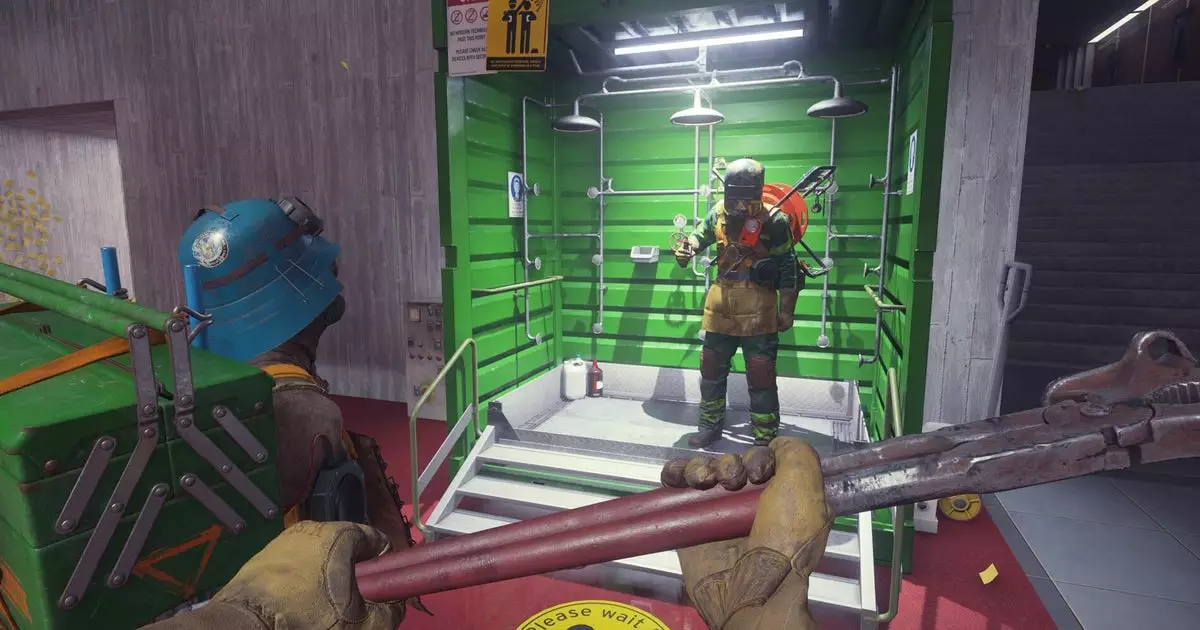Remedy Entertainment, known for its rich narratives and atmospheric gameplay, has recently unveiled its inaugural multiplayer title, FBC: Firebreak. This game introduces a cooperative experience set in the universe of their critically acclaimed title, Control. Formerly labeled as Condor, Firebreak promises to be an innovative shift for the developer, who has previously focused primarily on single-player storytelling. Given Remedy’s history and skill in crafting engaging worlds, the transition to a multiplayer setting raises both excitement and curiosity about how they will maintain their signature style within this new gameplay format.
The Premise of FBC: Firebreak
FBC: Firebreak places players in the role of operatives from the Federal Bureau of Control (FBC), the organization that protects against supernatural phenomena. Gamers will navigate the eerie and ever-shifting Oldest House, combating paranormal entities threatening its stability. This narrative backdrop mirrors the established aesthetics and tone of Control, inviting fans to dive back into its surreal and bizarre atmosphere. However, the cooperative element represents a significant departure from Remedy’s previous projects, offering players an opportunity to strategize and communicate in real-time while facing these phantasmagoric threats.
One standout feature of Firebreak is its implementation of “ultimate” abilities, reminiscent of well-known mechanics from games like Overwatch. Players can acquire and deploy abilities that stem from Altered World Objects—artifacts imbued with strange powers. The descriptions provided by Remedy’s team convey an essence of unpredictability, as these abilities possess the potential for both great advantage and risk. Game director Thomas Puha intriguingly likened them to a “jaguar in a box,” emphasizing the tension between powerful attacks and potential chaos. This approach ensures that Firebreak will encourage thoughtful execution rather than reckless abandon, setting it apart from more conventional cooperative shooters.
A Cooperative Experience That Prioritizes Accessibility
One of the most refreshing aspects of Firebreak is Remedy’s focus on accessibility in gameplay. Puha and his team have been clear: they aim to create a pick-up-and-play experience. Unlike many multiplayer titles that require time-consuming loadout setups or grinding for resources, Firebreak is intended to be welcoming, allowing players to engage quickly and enjoyably. This philosophy underscores Remedy’s intent to foster a game environment conducive to spontaneous play sessions with friends, sidestepping the potential fatigue often associated with games-as-a-service models.
While players can expect a narrative that aligns with the overarching lore of Control, Firebreak’s storytelling will differ significantly. The developer aims to shape a multiplayer environment that prioritizes world exploration, character interaction, and action rather than the intricate narratives found in their single-player titles. This shift raises interesting questions regarding how well the game will weave its narrative elements into gameplay, ensuring that both story aficionados and action-seeking players find value in the experience.
Evolving Content and Future Prospects
In line with contemporary gaming trends, Firebreak is set to evolve post-release, introducing new content and experiences over time. However, Remedy has made a conscious choice to distance the game from the conventions of content-driven fatigue, promising players that engagement will not feel like a chore. While the developers’ intentions appear sound, balancing post-launch content with player satisfaction and meaningful updates will remain a challenge. Players will undoubtedly watch closely to assess how the developers maintain their competitive edge while ensuring alignment with their brand identity.
FBC: Firebreak represents a bold foray for Remedy Entertainment into the realm of multiplayer gaming. With an eye towards both accessibility and engaging cooperative mechanics, this game could redefine the expectations for narrative-driven multiplayer experiences. As fans of Control eagerly await their return to the uncanny corners of the Oldest House, the prospect of combining rich storytelling elements with dynamic multiplayer gameplay warrants both excitement and scrutiny. Firebreak stands poised to separate itself from the crowded market, offering fans both familiarity and fresh encounters in the ever-expanding Remedy Connected Universe.

